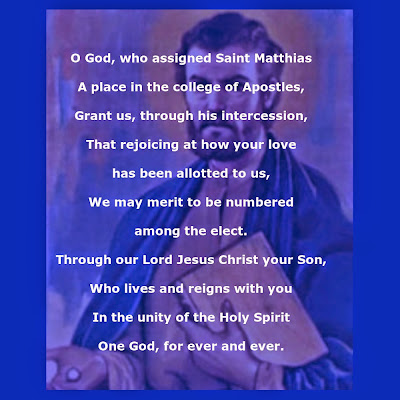Where do the wars and where do the conflicts among you come from?
Is it not from your passions that make war within your members?
You covet but do not possess.
You kill and envy but you cannot obtain....
Today we resume the celebration of Mass within the "ordinary cycle" of the year. Ordinary refers to ordinal numbers, that is, "a number defining a thing's position in a series, such as first, second, or third." (Google)
The season is not the routine or quotidian time of year; it is full of grace and opportunity. As my friend, Chaplain Keith at the VA hospital, was wont to say, "Another chance to get it right."
Right out of the gate we hear the challenge of Saint James, "Where do the wars and where do the conflicts come from?" and his immediate answer, "your passions that make war within your members!"
I suppose by members he meant the members of the Church as they struggled to understand the new life they'd been given. But in this individualist, post-Freudian age it might also refer to the inner conflict every Christian knows. As Saint Paul said,
We know that the law is spiritual; but I am carnal, sold into slavery to sin. What I do, I do not understand. For I do not do what I want, but I do what I hate. Now if I do what I do not want, I concur that the law is good. So now it is no longer I who do it, but sin that dwells in me.
In both cases, the collective and the personal, Saint James reminds us of our practice of penance. If we'd slipped from it during the eight week Easter cycle, we should be reminded of the obvious, the continual "war within our members."
Penance responds to the awareness of, and gratitude for, God's blessings. God is so very good to us despite our sins. Penance forgets nothing, neither our history of sin nor my personal guilt. For without that memory we cannot know or appreciate God's goodness.
Why would I remember our ancestors' escape from Egypt through the Red Sea and into the desert if I didn't remember the cruel oppression of the Egyptian slavers? Why would I remember Easter if I never think of my sins? The story of the Lord's crucifixion and resurrection would be nothing more than an ancient legend -- and a silly one at that -- but we believe it's an historical fact. God has raised up his Beloved Son and restored him to us as our God and Savior, and there is no other name by which we are to be saved.
Nor can I suppose that sin is a thing of the past. If I entertain such a fantasy, it evaporates like last night's dream. Where do the wars and conflicts come from except from my own members? Saint Paul, relying upon his Greek education, brought a standard list of vices to our conversation,
...immorality, impurity, licentiousness, idolatry, sorcery, hatreds, rivalry, jealousy, outbursts of fury, acts of selfishness, dissensions, factions, occasions of envy, drinking bouts, orgies, and the like. (Gal 5:19-21)
If I am personally not presently plagued with these complaints I certainly recognize them, and thank God for my deliverance.
Speaking of ordinary, there is nothing ordinary about practicing penance, for it restores our joy daily. We remember both our deliverance from a sinful past and our hope for that day when, by God's grace, we'll have outgrown all that nonsense. We long for that day of integrity when all our members will be integrated into the Body of Christ. On That Day, we will sing with all the angels, martyrs, and saints the praises of God and the Song of the Lamb:
Great and wonderful are your works,Lord God almighty.
Just and true are your ways,
O king of the nations.
Who will not fear you, Lord,
or glorify your name?
For you alone are holy.
All the nations will come
and worship before you,
for your righteous acts have been revealed.
Rev 15:3-4














